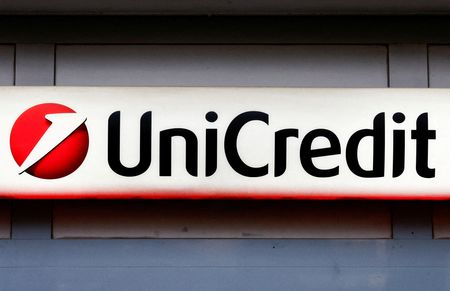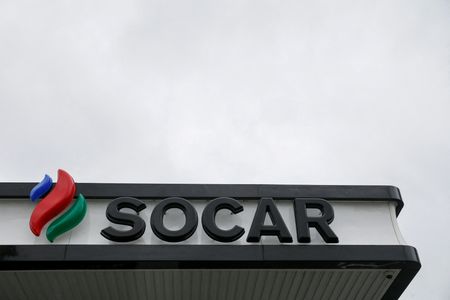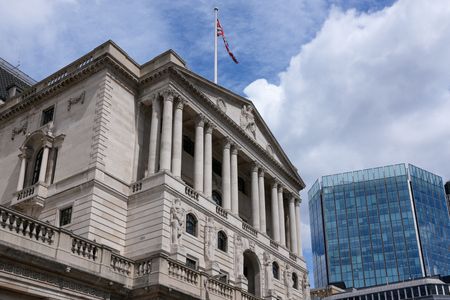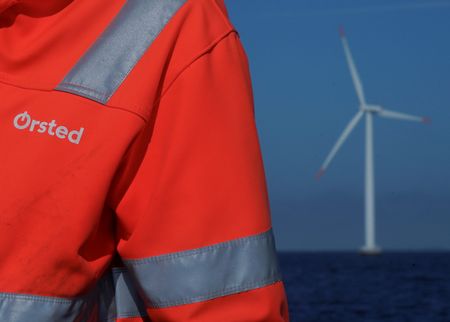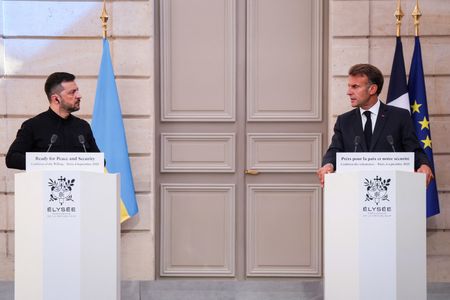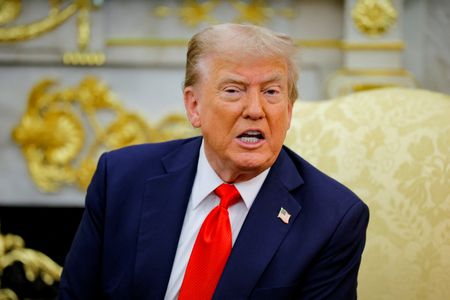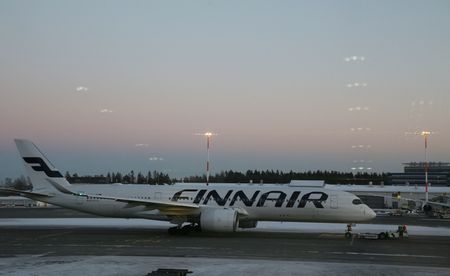By Valentina Za and Tom Sims
FRANKFURT (Reuters) -UniCredit respects German opposition to a full takeover of Commerzbank, but shareholders would have the last word on any potential deal, the Italian bank’s chief executive said on Thursday.
Over the past year, UniCredit has built up a 29% stake in the German bank and pressed for a tie-up, which Commerzbank opposes.
CEO Andrea Orcel, speaking at a conference, said UniCredit had not been able to table discussions over a possible combination of Commerzbank with the Milanese group’s local unit HVB.
“We’re very, very happy to have a constructive dialogue with anybody who wants to have it. So far, we have failed to have that dialogue,” he said.
A veteran dealmaker, Orcel has embarked on a sprawling M&A strategy over the past year, after driving a seven-fold increase in UniCredit’s share price since his arrival in 2021.
However, a bid for smaller peer Banco BPM has been thwarted by the Italian government, while the Commerzbank stake has angered Berlin.
“It’s a critical factor,” Orcel said when asked if UniCredit could bid for the whole of Commerzbank without German government support.
The equity portion of UniCredit’s stake is currently 26% and Orcel said UniCredit would convert the remaining derivative contracts into shares this year.
“Ultimately, all of us management team are accountable to our shareholders, people, and clients, not to governments. But we respect their position and we need to cooperate with it,” he added at the conference, organised by the Handelsblatt newspaper.
While UniCredit’s investment in Commerzbank was satisfactory at present, returning around 20%, the German bank’s performance had to improve to warrant the current market valuation.
“If there is trouble, my shareholders would ask me to reconsider because we have a lot of money invested,” Orcel said.
Germany’s new government, indirectly declining Orcel’s request to meet, has suggested UniCredit deals directly with Commerzbank, whose management strongly rejects a combination.
“If I were in that position, at minimum, I would sit down confidentially and see what is on the table before criticising it,” Orcel said, referring to Commerzbank.
UniCredit holds quarterly meeting with Commerzbank as an investor.
“We ask the questions that every investor would ask. We get the answers: on some things we agree, on some we don’t,” he said.
The complementary nature of Commerzbank and HVB is such that a merger would lead to “significant” job losses only in central offices, Orcel said, adding the network would not be affected and the cuts would anyway be lower than anticipated.
“I think there will be, at headquarters, a significant number, but a lot less than the numbers that have gone around,” he said.
“I would say another thing … if you see Commerzbank standalone in … five to seven years, they will cut probably more jobs than they would consolidating with us. Because … no-one can survive in banking with a 57% cost-income.”
HVB’s cost-to-income ratio fell further to around 40% in 2024, from 44% in 2023.
Orcel said UniCredit had “won his heart” and he wanted to remain as CEO for as long as shareholders allowed it. He guided for a net profit “well above” 11 billion euros ($13 billion) in 2027, compared with a 2025 goal of around 10.5 billion.
($1 = 0.8542 euros)
(Reporting by Tom Sims in Frankfurt and Valentina Za in Milan; editing by Giulia Segreti and Susan Fenton)

